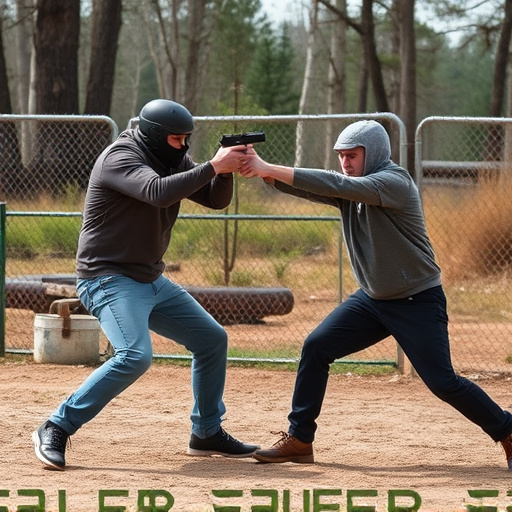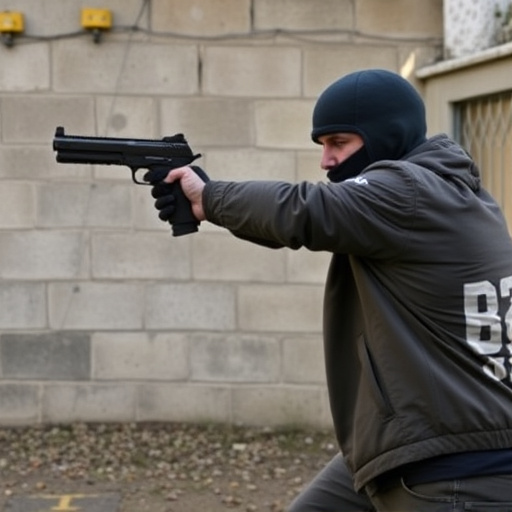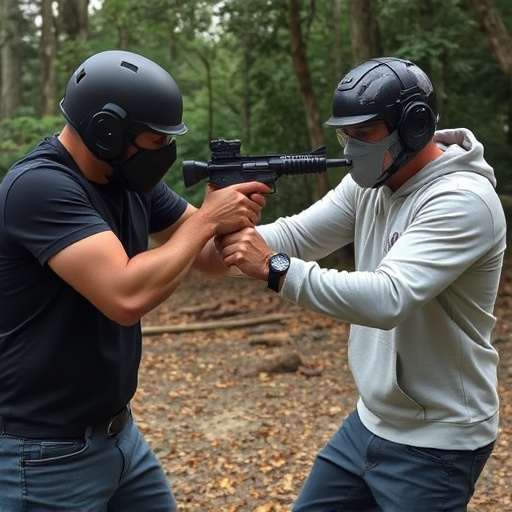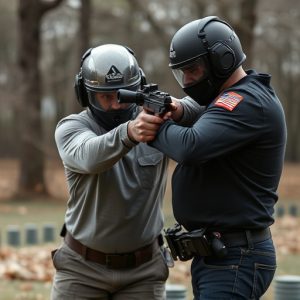Civilian Taser Ownership: State Laws, Safety, and Effectiveness
Understanding civilian taser (stun gun) ownership laws is crucial worldwide due to diverse regulatio…….
Understanding civilian taser (stun gun) ownership laws is crucial worldwide due to diverse regulations and ongoing societal debate. These laws balance stun gun effectiveness for personal protection against potential misuse, especially considering impact variations on different individuals based on physical build, health, environment, and psychological factors. Effective navigation of legal nuances is vital for responsible civilian ownership and public safety policy, ensuring stun guns are used responsibly as a last resort, with proper training addressing varied effectiveness.
“Unraveling the legal landscape of civilian stun gun ownership, this article offers a comprehensive guide to state laws governing Taser possession. With an emphasis on understanding the nuances of the law, we explore how varying regulations impact accessibility. Furthermore, it delves into the factors influencing the effectiveness of stun guns on different individuals, highlighting safety considerations and training requirements essential for civilians considering this self-defense tool. Discover key insights into navigating state laws and ensuring responsible ownership.”
- Understanding Civilian Taser Ownership: A Legal Perspective
- State Laws Regulating Taser Possession and Use
- Factors Affecting Taser Effectiveness on Individuals
- Safety Considerations and Training Requirements for Civilians
Understanding Civilian Taser Ownership: A Legal Perspective

Understanding Civilian Taser Ownership: A Legal Perspective
In many countries, civilian taser ownership is regulated by state laws that vary widely in their requirements and restrictions. This legal landscape reflects the ongoing debate surrounding the effectiveness and appropriateness of stun guns for personal protection. While proponents argue that tasers can deter attacks and provide a non-lethal means of self-defense, critics highlight potential misuse and the risk of unintended harm, especially on individuals with medical conditions or those in close quarters.
State laws often consider factors such as background checks, training, and specific circumstances under which a civilian can legally possess a taser. The effectiveness of these measures lies not only in their ability to regulate responsible ownership but also in balancing personal safety with the potential risks associated with stun guns. Understanding these legal nuances is crucial for civilians considering taser ownership and for policymakers aiming to ensure public safety in an ever-evolving legal and technological environment.
State Laws Regulating Taser Possession and Use

State laws regulating taser possession and use vary widely across the United States, reflecting differing perspectives on stun gun effectiveness and public safety. Some states allow civilians to own tasers with minimal or no restrictions, while others mandate specific requirements like permits, training certifications, or age limitations. These regulations often take into account factors such as local crime rates, historical usage data, and community input.
The variability in state laws underscores the ongoing debate over taser effectiveness on different people. Proponents argue that tasers are valuable non-lethal force tools for self-defense and law enforcement, particularly in de-escalating potentially dangerous situations. Opponents, however, raise concerns about misuse, accidental injuries, and the potential for disproportionate impact on marginalized communities. Understanding these state laws is crucial for citizens seeking to exercise their rights responsibly and for policymakers aiming to ensure public safety.
Factors Affecting Taser Effectiveness on Individuals

The stun gun’s effectiveness on individuals can vary greatly due to several factors. One of the primary considerations is the physical attributes and health condition of the target. People with smaller builds might experience a more powerful shock, while those with higher muscle mass could require a higher voltage to effectively disable them. Additionally, age plays a role; older adults may have lower nerve sensitivity, reducing the stun gun’s impact.
Other influences include environmental conditions and individual variability in pain tolerance. Wet or slippery surfaces can reduce grip and affect the user’s ability to deploy the stun gun accurately, while adverse weather conditions might also impact the device’s performance. Moreover, personal factors like fear, stress, or previous trauma can influence how an individual responds to the electric shock, potentially leading to variations in effectiveness.
Safety Considerations and Training Requirements for Civilians

When considering civilian stun gun ownership, safety is a paramount concern. While stun guns are generally designed to incapacitate individuals through electric shock, their effectiveness can vary widely based on factors such as the individual’s size, physical condition, and level of resistance. It’s crucial for civilians to understand that stun guns are not foolproof and proper training is essential. Many states require some form of certification or completion of a safety course before allowing citizens to purchase stun guns.
Training programs often cover safe handling practices, awareness of local laws, and understanding the physical limitations of stun guns. They equip individuals with knowledge about de-escalation techniques, legal implications of using force, and appropriate response strategies in different scenarios. Adequate training ensures that civilians can make informed decisions and responsibly utilize their stun guns as a last resort for self-defense while minimizing potential risks to themselves and others.
Civilian taser ownership, while regulated by state laws, offers a powerful tool for personal safety. Understanding these regulations, along with the factors affecting stun gun effectiveness on different people, is crucial. Ensuring proper training and safety considerations can help civilians make informed decisions regarding taser possession. By navigating these laws, individuals can protect themselves and their loved ones effectively while adhering to legal requirements.


